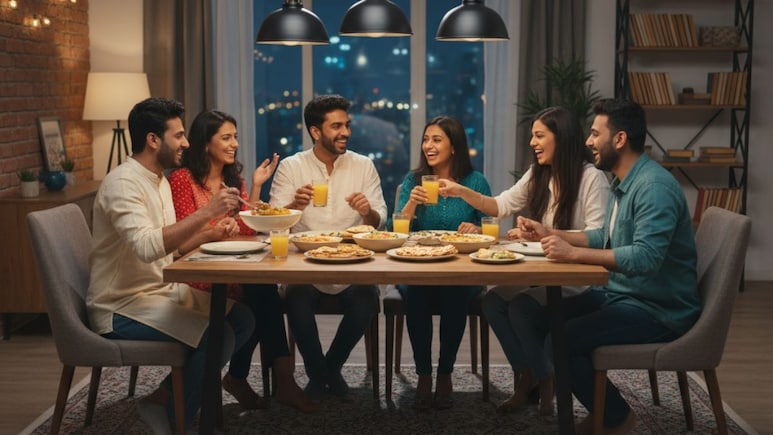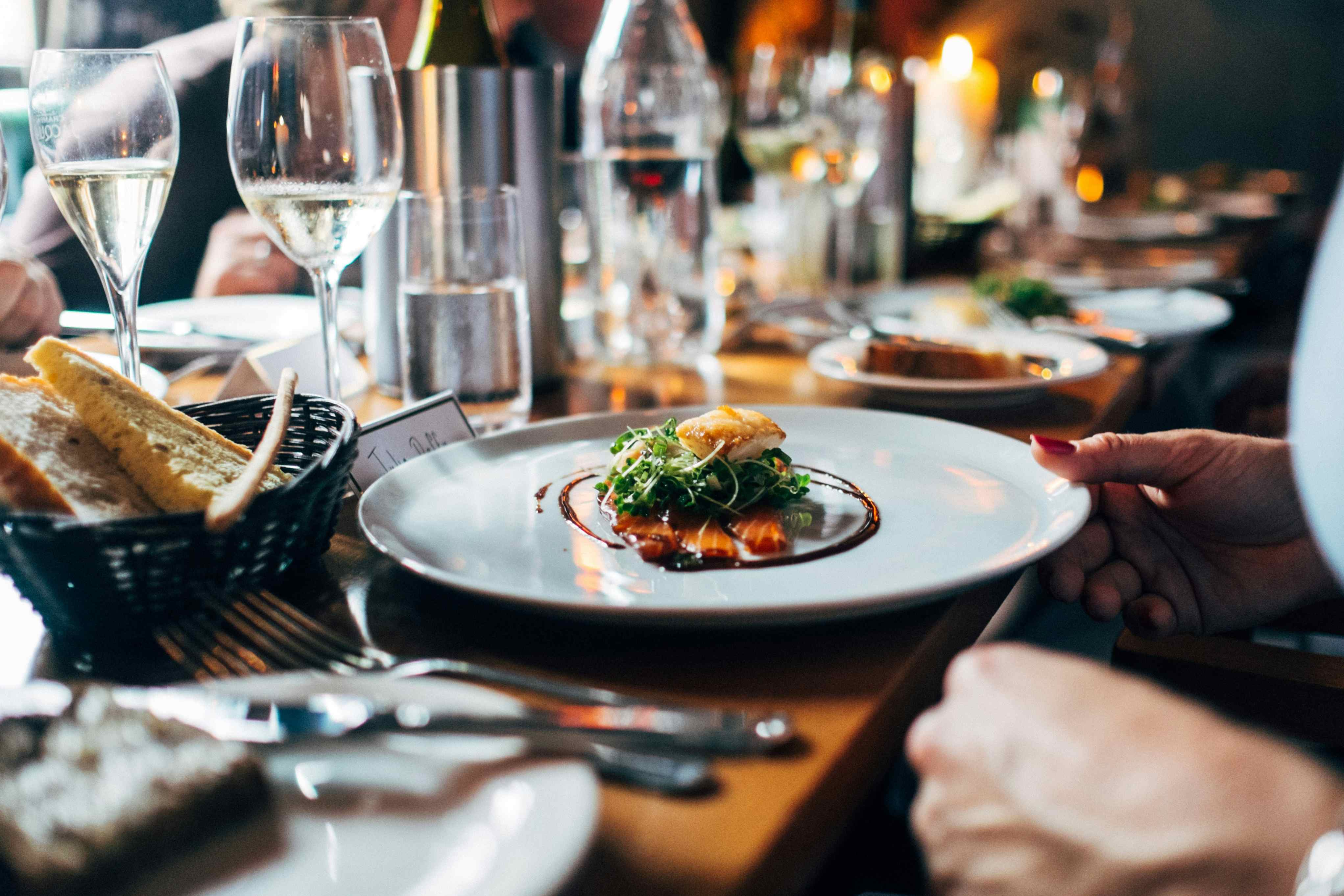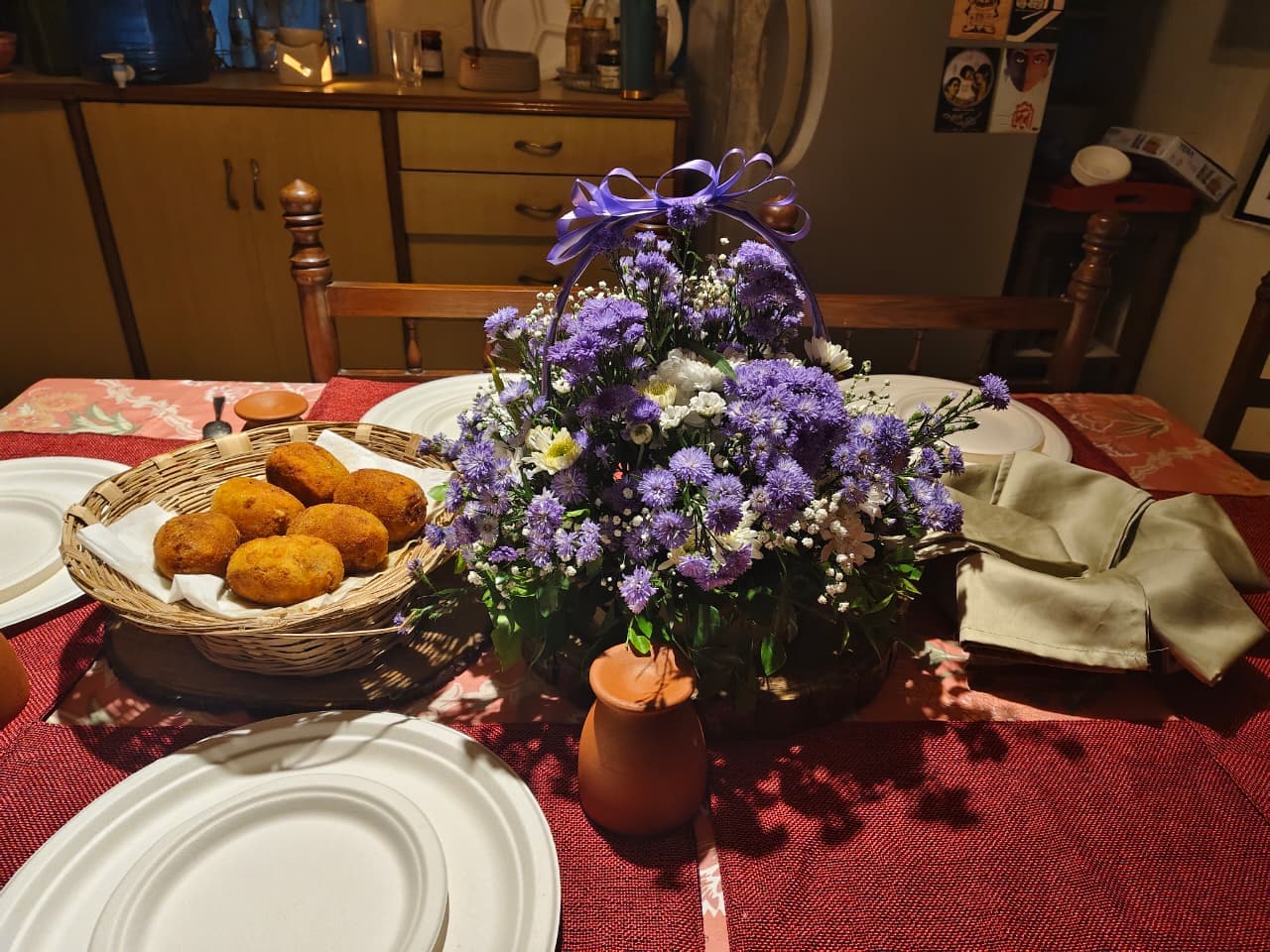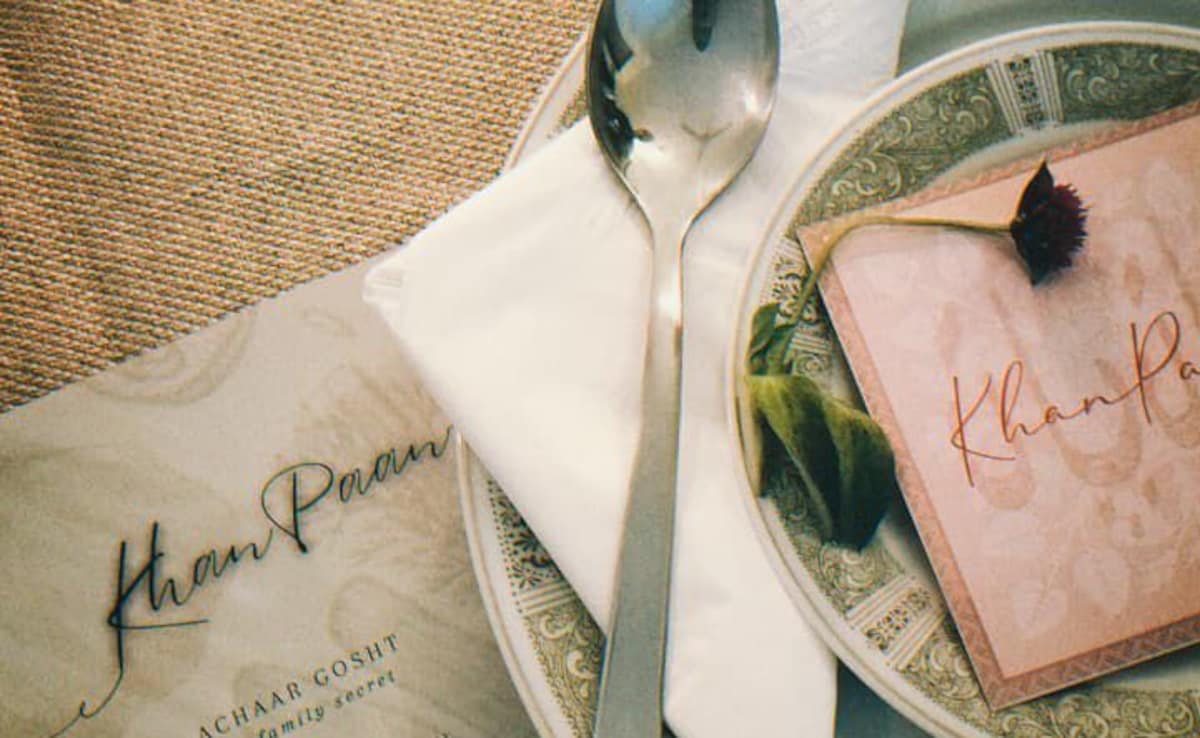
It's a Friday evening in Delhi. Inside a South Delhi home, guests gather around a long wooden table set with flickering candles, bowls of chutneys, flowers, and the hush of slow music that drifts over steaming platters of food.
Conversations flow as freely as the Kosha Mangsho sliders with bite-sized flaky parathas and the seasonal Bhapa Doi. No loud music, no hurried waiters, no laminated over-the-top menus. This isn't a restaurant. This is a supper club.
Across India, an increasing number of food lovers are opening their homes and their kitchens to strangers and friends alike, creating intimate dining experiences that go far beyond the traditional restaurant model. What started as an underground phenomenon in the West has now found a distinctly Indian flavour.
How Did It All Began
Supper clubs began in the early 20th-century United States as hybrid venues for dining, drinking, and socialising. A frequently cited first mover was Lawrence Frank's Beverly Hills operation in the 1930s, which blended California glamour with Midwestern hospitality roots to attract travellers.
By mid-century, supper clubs became fixtures across Wisconsin and neighboring states, characterised by comfort food, cordial service, and community gathering. Over time, many supper clubs shifted from nightclub-style evenings to primarily dinner-focused restaurants, keeping the ritualised evening out while scaling back floor shows and late hours.
Since the 2010s, the term has also been adopted for "underground restaurants" and home-based dining experiences, especially in the UK and Latin America, reviving the social, intimate, and experimental spirit under a contemporary format.

Supper clubs began in the early 20th-century. Photo: Unsplash
Now, it looks like it is making its way to India, as well.
This growth is for various reasons but mainly because of a growing demand of consumers wanting to 'experience their food', rather than a traditional restaurant set up.
A Growing Appetite For 'Something Different'
For many urban diners, restaurants have started to feel repetitive.
Sreetama Basu, 33, a journalist and the founder of the Khai Khai Club, a supper club that focuses on Bengali cuisine in Delhi, says, "As a diner, restaurants have reached a saturation point. You will find 20 new restaurants opening every month, but they all get lost in the crowd."
She says diners are seeking what restaurants often cannot deliver - intimacy, storytelling, and a sense of community.

Dim er devil as starters. Photo: KhaiKhaiClub
"Also, the loud music doesn't let people have conversations. At someone's home in an intimate setting, one not only gets to try new food and get to know the story behind every dish, but also they are able to have free-flowing conversation. Diners are on the lookout for something new, something non-restaurant," she adds.
Bringing Back Lost Recipes
Majorly founders start their own supper clubs for a personal reason, that is related close to home. At her Khai Khai Club, Basu focuses entirely on Bengali food, but not in the predictable way.
"I am my own target audience. I was tired of the Bengali food you get in Delhi. It's subpar, more suited to a north Indian palette, even in CR Park," Basu says.
Her menus spotlight lost recipes, unusual dishes absent from mainstream menus, and cult classics reimagined with flair. The kosha mangsho arrives not with rice but as a slider, tucked into bite-sized parathas. Bhapa doi is served with a seasonal fruit twist.
"The idea is to not just serve beyond the known, but also amping it up to suit every kind of palette, without taking away from the soul of the OG dish."
The supper club format allows her to narrate the stories behind each dish: why it matters, what memories it carries, and how it reflects a larger cultural identity.
Food As A Part Of Community
The communal nature of supper clubs is as much a draw as the food itself. "Food always gets people together. At a supper club, it's about a shared, sensory experience that creates a relaxed, community atmosphere," Basu says
Guests may arrive as strangers, but the food gives them a conversation starter. "This storytelling while dining creates a personal and authentic experience compared to a typical restaurant dinner. The slow, multi-course format encourages guests to savour both the food and the conversation. A meal becomes a lasting memory," she adds.
Data Shows It Too
It isn't just passionate home cooks noticing the shift. According to Anushree Dewen, Head of Marketing & Innovation at Godrej Foods Ltd, supper clubs are part of a wider movement in Indian dining.
"Our annual Godrej Food Trends Report to understand how consumer experiences are evolving. One of the clearest shifts we have seen is the rise of supper clubs, micro-restaurants, and community dining formats that go beyond food to celebrate stories, creativity, and connections," she says.
The Godrej Food Trends Report 2025 reveals that 80% of 190+ culinary experts expect menus to increasingly focus on culinary craft and memorable interactions between chefs and diners.
About 77% believe storytelling will play a central role in shaping how people experience food.
When Memories Shape Menus
For some hosts, supper clubs are deeply personal projects. Take Kabeer Khan, who runs KhaanPaan while balancing a full-time marketing role at Ikea. For him, food is a way of holding on to his Indore childhood, when weekends meant his mother cooking elaborate feasts for 30 to 40 guests.
"My mother is a very good cook. I grew up watching her prepare dishes like mutton korma with 15-20 ingredients, not just for special occasions but as part of how we ate. No one was shy of eating - they would eat like they were dying the next day. That's how I grew up," he recalls.

For some hosts, supper clubs are deeply personal projects. Photo: Kabeer Khan/KhanPaan
Moving to Bombay in 2014, he found himself missing both the flavours and the passion for eating. Covid lockdowns pushed him back into cooking, guided by long calls with his mother. By 2024, he launched his first supper club with a table of four. Today, KhaanPaan is a monthly fixture, especially popular since he moved to Bangalore.
Recreating The Nostalgia
For Khan, the dining table itself is part of the experience. "I set up the table which also sets the vibe for the club. I add flowers that complement the food, like mogras, and a scent that reminds me of home. For music, I play ghazals, because that's how it was growing up - mom cooking and dad singing, when we had guests."
Each supper is designed as a journey. The four-course meal might include kebabs, keema samosas, biryani, a rich curry, and a dessert, with every course accompanied by the story of how it came to be.
To build community, he creates a WhatsApp group before each dinner, encouraging guests to connect beforehand.
"Now I've seen a lot of them making plans to meet also. It's a good way to meet new people," he says.
Metro Cities Are Leading The Charge
While supper clubs exist in smaller cities, metros like Delhi, Mumbai, and Bangalore are where they are gaining the most traction.
"Bangalore is a very community-driven city, and more people are looking for things to do on weekends. That's why supper clubs are really picking up here," Khan says.
Anushree Dewen also agrees that this appetite for novelty is reshaping dining in urban India. "Consumers want to connect more deeply with what they eat, and supper clubs deliver that by weaving in culture, nostalgia, and personal connection," Dewen says.
More Than A Meal
For both hosts and diners, supper clubs is all about authenticity. The food matters, yes, but so does the intimacy, the storytelling, and the human connection that comes with breaking bread at a shared table.
Basu sums it up, "Food is deeply tied to culture, heritage, and personal memories. Like at a supper club, the host and even the guests, often share stories related to the dishes being served, like where a recipe came from or a memory associated with a specific food. This storytelling while dining, I believe, creates a personal and authentic experience than a typical restaurant dinner."
Also, the format of a supper club is designed for a slow, multi-course meal, which encourages guests to be present and to savour both the food and the conversation, according to Basu.
"This unhurried pace allows for the natural flow of connection, turning a meal into a lasting memory," Basu says.
And that may be why supper clubs, still niche today, are fast becoming the future of how Indians eat.
Track Latest News Live on NDTV.com and get news updates from India and around the world

